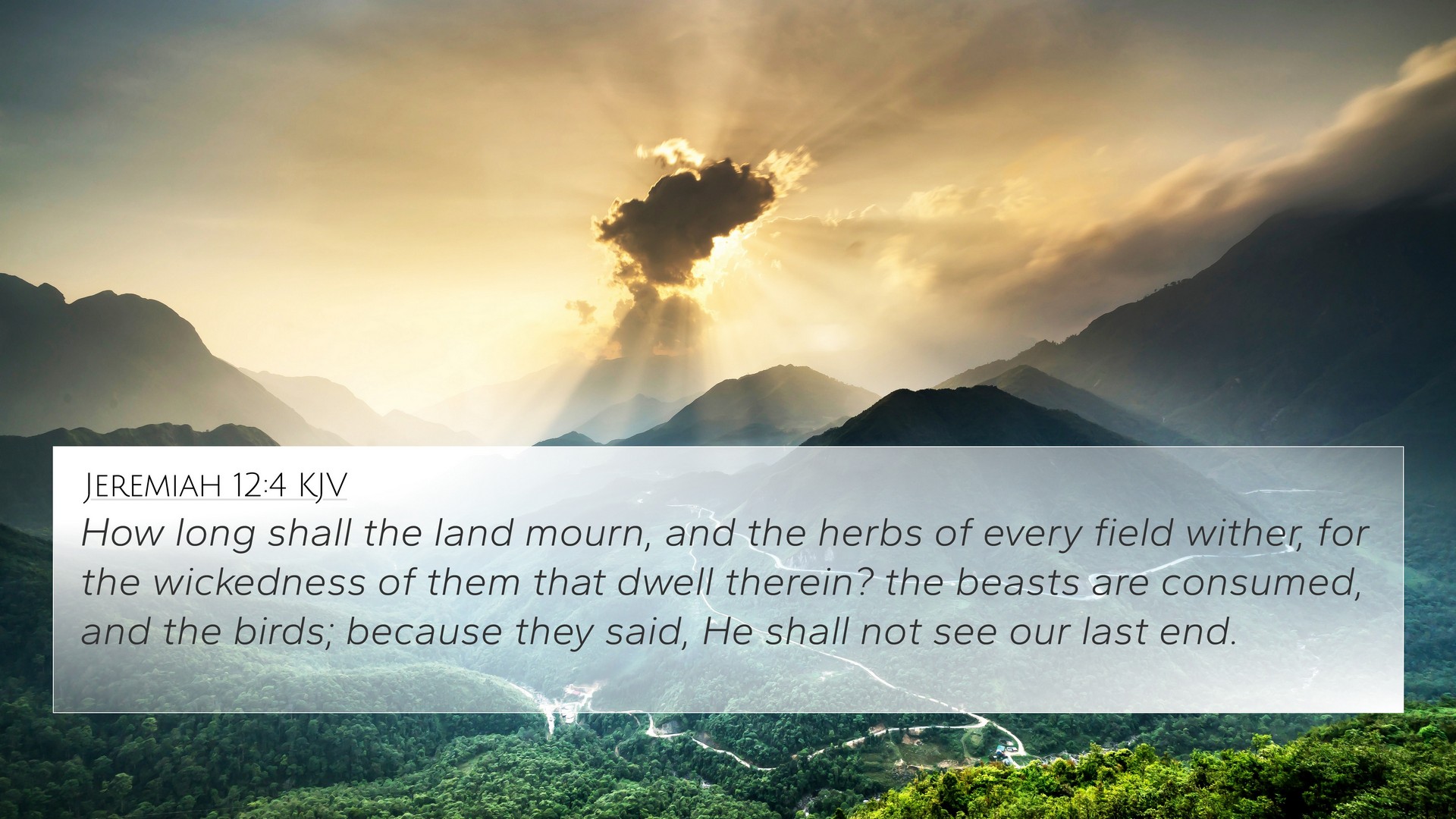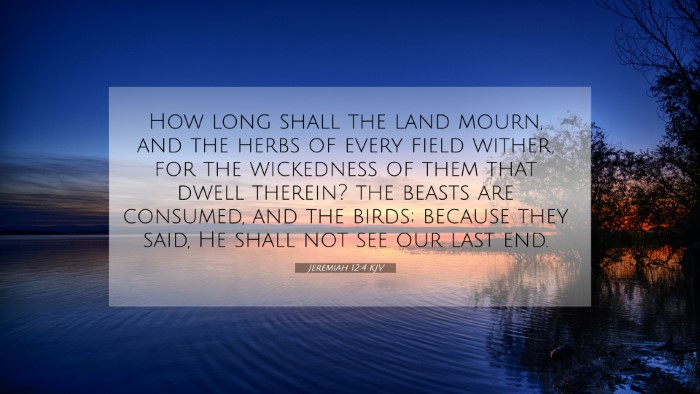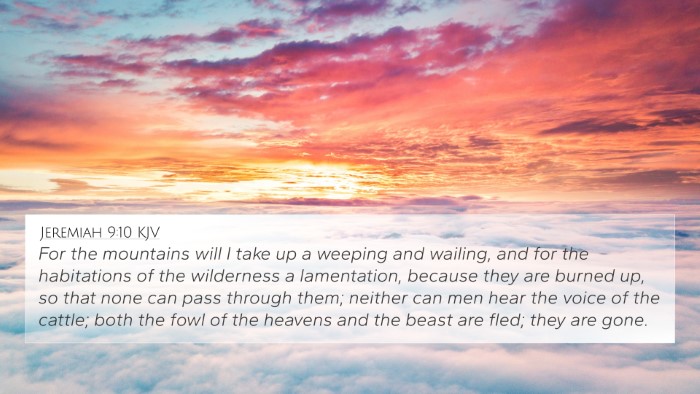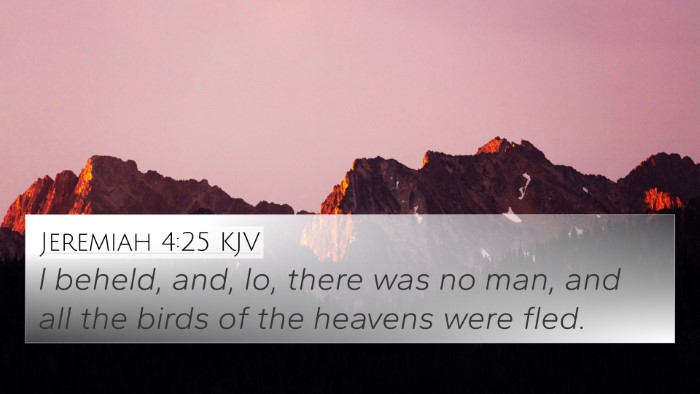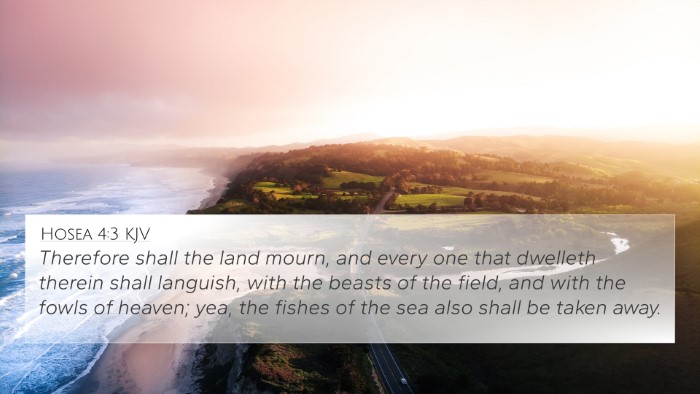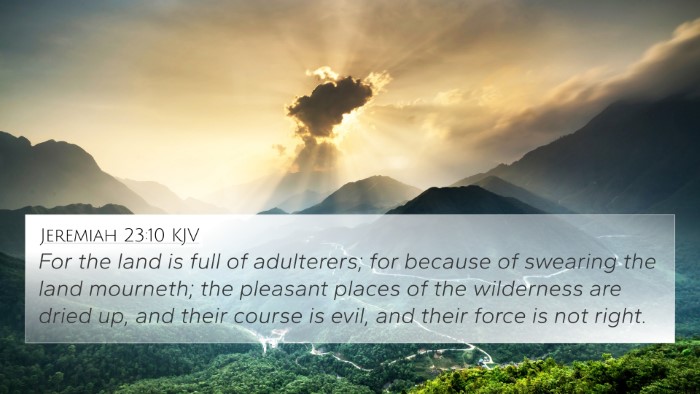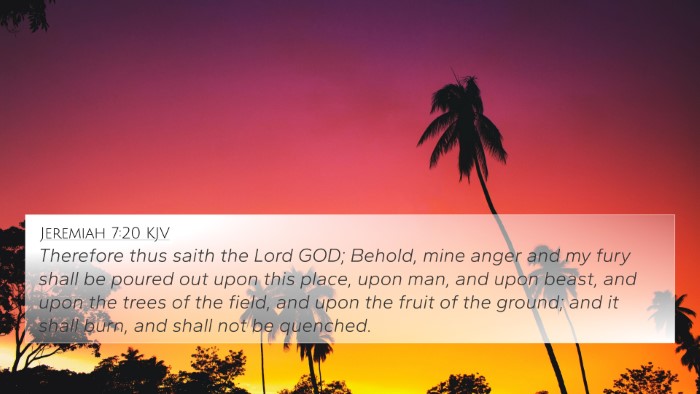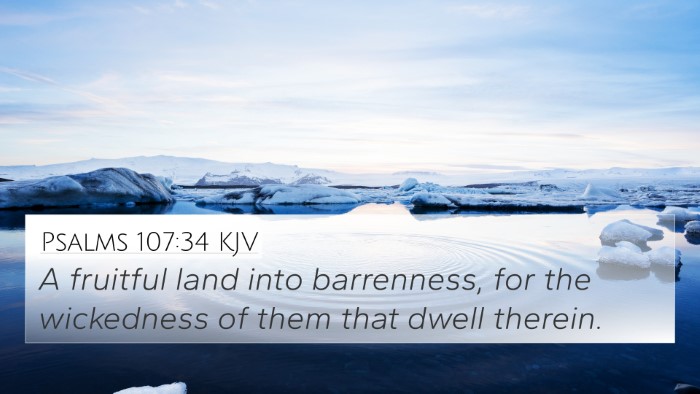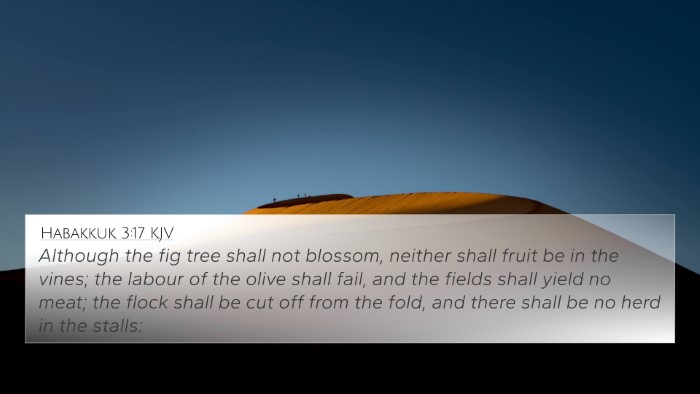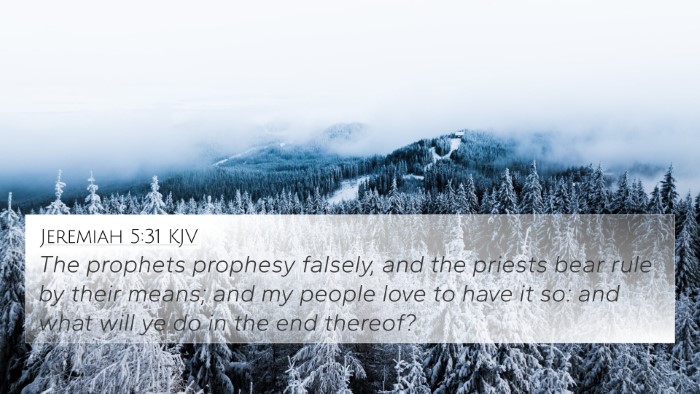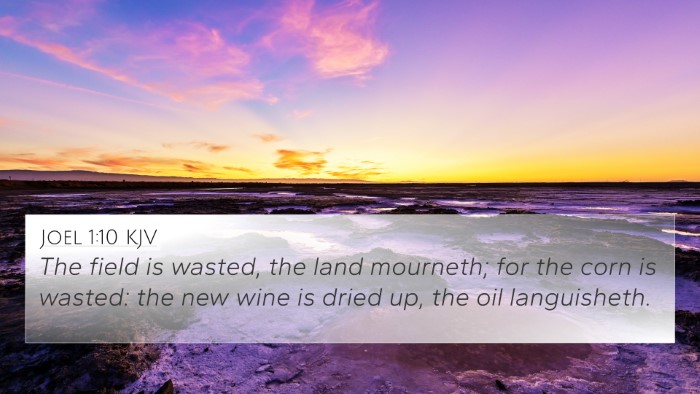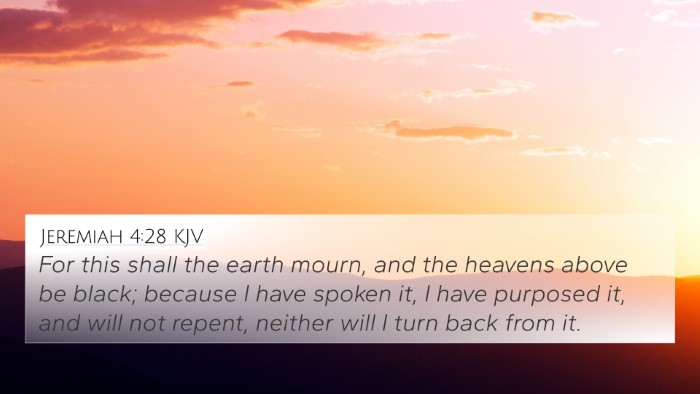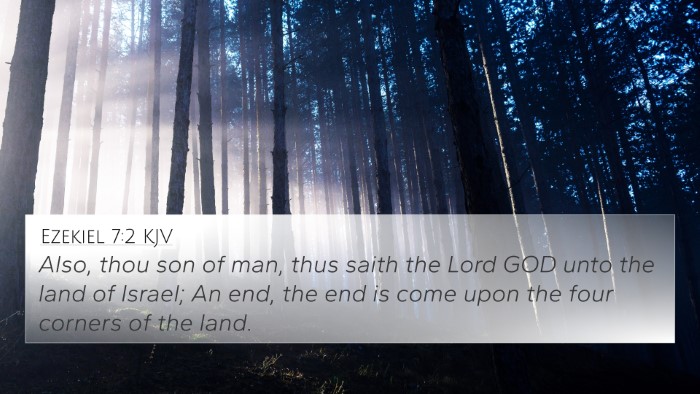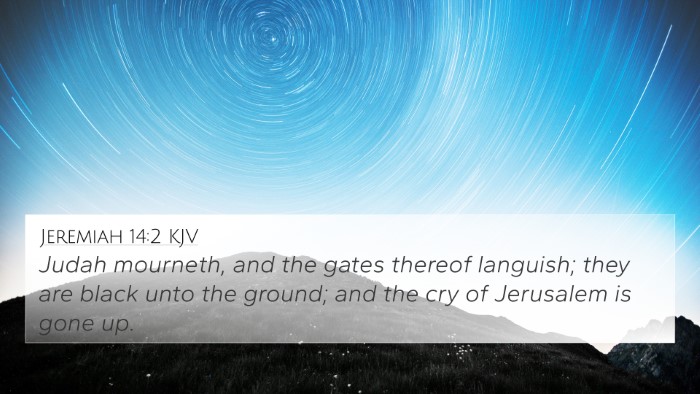Understanding Jeremiah 12:4
Jeremiah 12:4 captures a moment of deep inquiry and perplexity faced by the prophet Jeremiah in a time of judgment and suffering. This verse reads as follows:
“How long will the land mourn and the grass of every field wither? For the evil of those who dwell in it, the beasts and the birds are swept away, because they said, 'He will not see our latter end.'”
Meaning and Insights from Public Domain Commentaries
This verse poses poignant questions reflecting Jeremiah's despair about the fate of Judah and those living in it. The commentaries by Matthew Henry, Albert Barnes, and Adam Clarke provide substantial insights.
-
Matthew Henry's Commentary:
Henry emphasizes the anguish of the land, expressing that the natural decay signifies the moral decay of society. He underlines the seriousness of sin that leads to divine judgment, which brings desolation to both the people and the land. Jeremiah's questioning reflects his concern for the spiritual state of his nation and its consequences.
-
Albert Barnes' Notes:
Barnes interprets the mourning of the land as a metaphor for the consequences of iniquity. He points out that the land's suffering is intertwined with the moral failures of its inhabitants. The idea that God is distant, as presented in the latter part, is pivotal; it signifies the complacency of the people who believe they are beyond judgment.
-
Adam Clarke's Commentary:
Clarke elaborates on the imagery of mourning, explaining it as a universal declaration of the land's grief due to the wickedness of its inhabitants. He highlights the profound connection between humanity's choices and the environment, suggesting that societal decay leads to ecological consequences.
Key Themes and Thematic Connections
The central themes of Jeremiah 12:4 resonate throughout the Bible, reflecting God's judgment, the consequences of sin, and the burden of prophetic messages. This verse invites connections to other biblical passages that explore similar subjects:
- Isaiah 24:4-5: Discusses the earth being defiled because of its inhabitants, paralleling Jeremiah's message about the consequences of sin.
- Ezekiel 18:30: Urges the people to repent from all their offenses, linking personal responsibility with collective outcomes.
- Hosea 4:3: Reflects on the devastation of the land due to the people's sins, reinforcing the theme of environmental and spiritual consequences.
- Matthew 23:37-39: Jesus laments over Jerusalem, paralleling Jeremiah's mourning, showing the enduring grief over God's people’s rejection.
- Romans 8:22: Speaks to the groaning of creation as it awaits redemption, echoing the sadness of a land burdened by sin.
- Galatians 6:7-8: States the principle of sowing and reaping, affirming that actions lead to consequences both for individuals and for society.
- Revelation 11:18: Mentions God's judgment on the earth and its inhabitants, resonating with the themes presented in Jeremiah.
Cross-Referencing Biblical Texts
This exploration of Jeremiah 12:4 encourages a deeper understanding of the connections between various scriptures. Utilizing tools for Bible cross-referencing enhances one's study, providing clarity on themes and ideas that transcend individual verses. Here are a few tools and methods to assist in cross-referencing:
- Bible Concordance: Utilize a concordance for locating keywords and themes across the scriptures.
- Cross-Reference Bible Study: Engage in contextually linking verses within the Old and New Testaments to discover thematic continuity.
- Bible Reference Resources: Leverage reference materials that provide commentary and explanations on interrelated verses.
- Bible Chain References: Follow the chain of related scriptures to see the unfolding narrative of God's dealings with humanity.
- Comprehensive Bible Cross-Reference Materials: Use comprehensive guides that offer cross-referenced subjects and themes for in-depth study.
Conclusion
Jeremiah 12:4 serves as a poignant reminder of the connection between human behavior and its consequences, both spiritually and ecologically. By examining this scripture alongside related biblical texts and employing cross-referencing methods, readers grasp the profound themes of judgment, responsibility, and the need for repentance. Understanding these connections is essential for theological studies, sermon preparation, and personal reflection.
Further Exploration
For those interested in digging deeper, consider exploring:
- How to find cross-references in the Bible.
- Identifying connections between the Old and New Testament.
- Links between the Prophets and Apostolic teachings.
